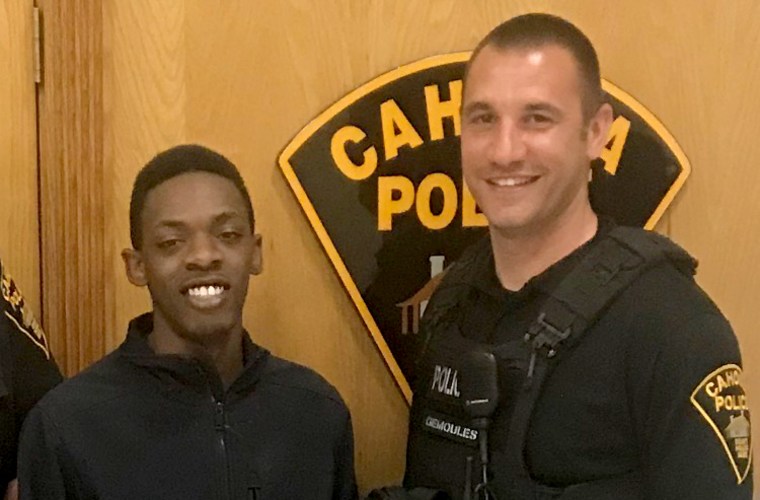I've thought about how I wanted to respond to this. At least when I use the term community policing I speak of a multifaceted community effort. That means a lot of things and I do not believe financial cost to be the prohibitive factor. It's a will to do it and learning the methods that have PROVEN effective. I mentioned people from the community policing more so as a reference to the past. I acknowledged it might not be feasible at all but there are elements from that era we can learn from.
Sk8 said it great when he talked about unintended consequences of putting cops in cars and taking them off the street. Again, not saying remove all cars and just have guys literally walking the block all day.
I posed the initial question because of Sk8s comment about communities needing the most policing having the most mistrust and animosity. That's simply a fact. It also seems to be the case that
one of the most critical components of effective law enforcement is the establishment and maintenance of public trust.
So yes, just hiring a bunch of guys to play basketball with kids is lazy and I don't want to get distracted on that. As you point out, the emphasis should be on identifying what is working and providing education and resources to actually do effective community policing. I understand you know this. Just making sure you understand I don't think the solution is bball playing cops.
Chief Robert Fager of the HPD sums up the value of this kind of engagement best: “To think that societal relationships are a secondary priority in running a public safety organization is professional suicide. Law enforcement is built upon the trust and needs of its community—and with the advent of social media and information access, that community can be national in scope. Our department’s contemporary philosophy integrates direct interaction with our citizenry through community forums, youth scholastic and sports partnerships, no-cost driver safety and basic first-aid classes, and our personal pride—Coffee with a Cop.
“In essence, create offerings that move or attract people, then invest your staff in it. Not only do you derive true-value feedback, but moreover, you literally reintroduce police officers and citizens to each other, with no overtone, and allow them to reinvigorate the common goal of a safer, more enriched community.”
These trust-building non-enforcement activities cost little in terms of money, time, or effort, but they pay huge dividends in public safety.
https://cops.usdoj.gov/html/dispatch/06-2015/community_engagement_and_partnership_building.asp
============
However, many agencies have said they were employing community policing, but, in reality, they do not understand what true community policing is. It is not a program or a dedicated person or division called the community policing officer or community policing division—community policing is an organizational philosophy that must be embraced from the top-down and the bottom-up. It is a true understanding that the police cannot do it alone and must build partnerships with the community to solve community problems. Crime is a community problem, not just a police problem. The solution to crime is rooted in crime prevention and the prevention of problems conducive to criminal behavior. Many of the law enforcement agencies who practice community policing miss the key foundation of prevention. The end goal of prevention and community policing is an improved quality of life for the community. This means the end goal for all law enforcement agencies should be improving the quality of life for those who live in, visit, or own a business in their communities. Public trust can be improved or restored and crime reduced through this collaborative approach to policing. The following are seven steps to building public trust in policing using a prevention-focused policing model:
http://www.policechiefmagazine.org/prevention-focused-community-policing/


